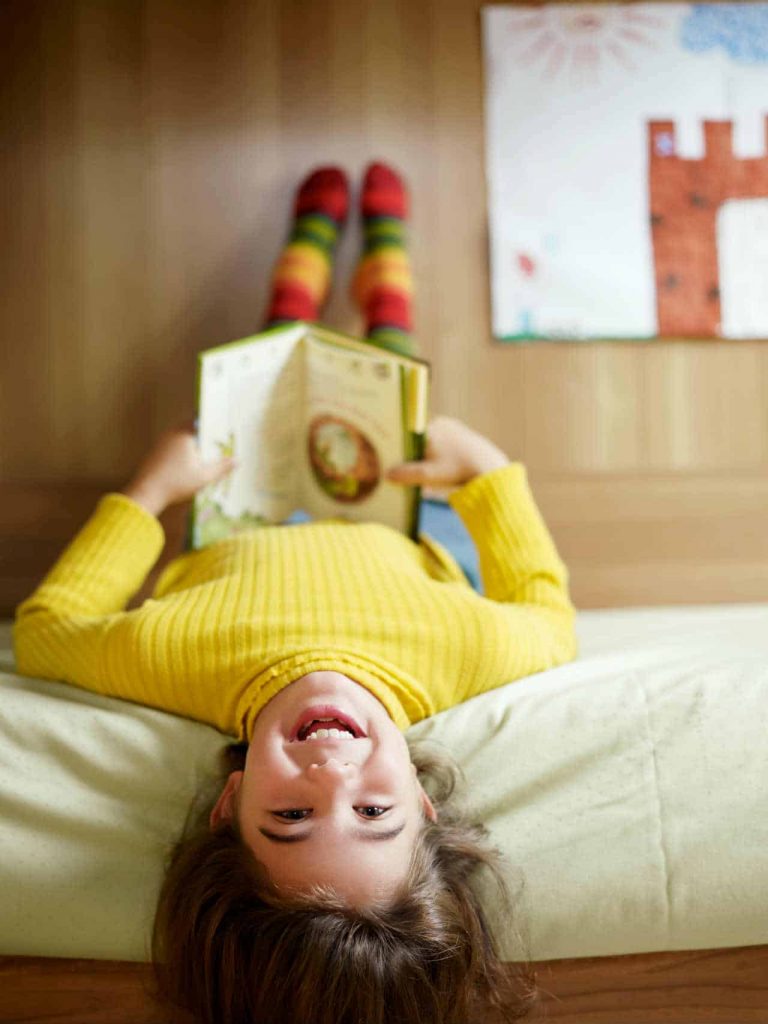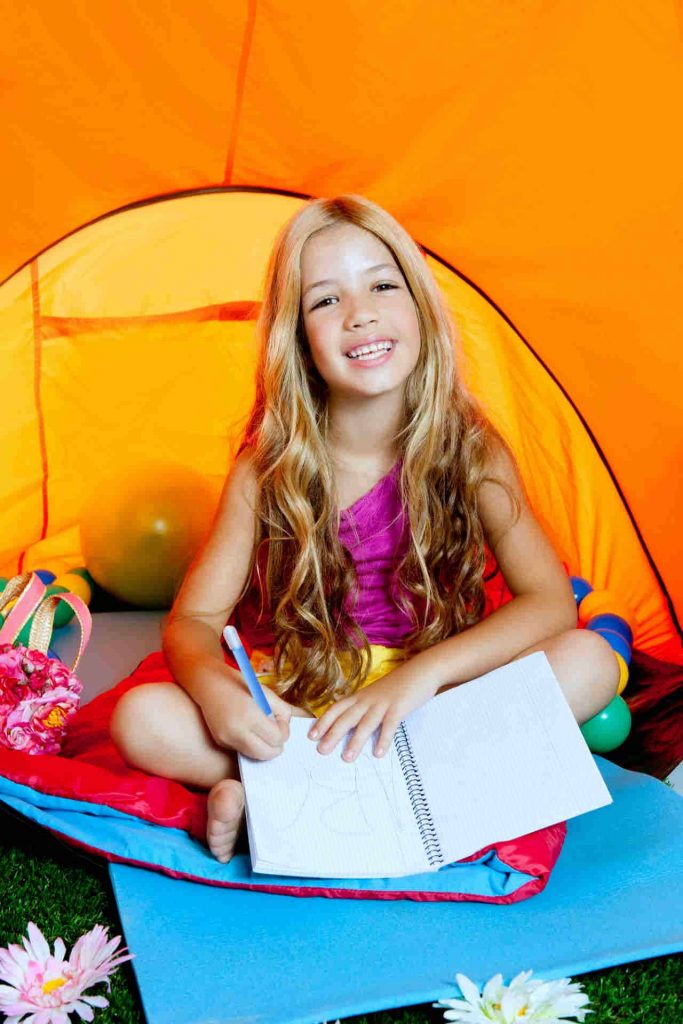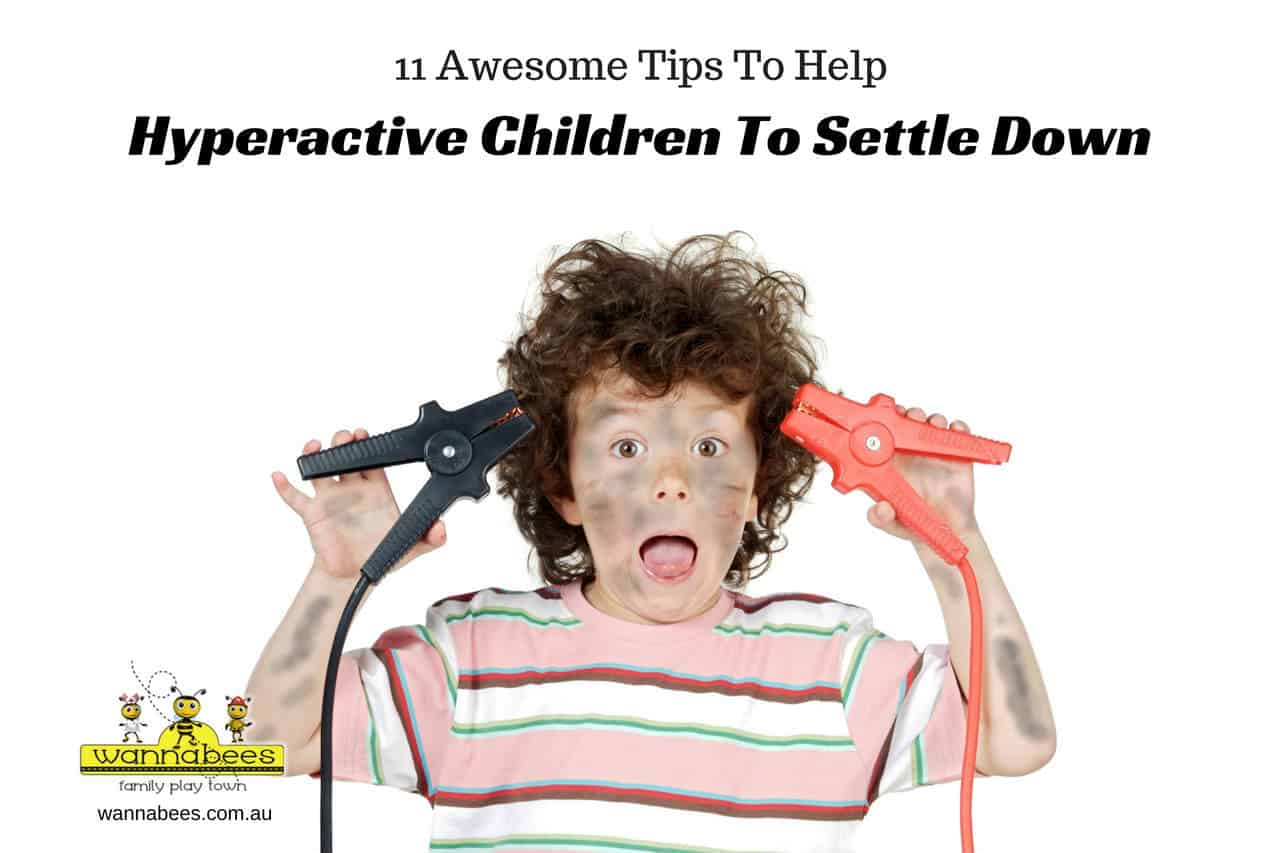Hyperactive children parents are familiar with the phrase “Would you just calm down please!” and possibly use it very often.
On this article, we will explore some tips to help parents of hyperactive children settle down. These easy to follow techniques and tips, will require the same effort as scolding and shouting but deliver very different outcome for hyperactive children.
It is very important that parents are willing to be involved as the tips that you’ll find below, require a practical parenting approach.
Top 11 Quick Calming Tips For Hyperactive Children
1. Deep Breathing
What works for adults works for children too. The oldest trick on the list is and of course our top 1 is “Deep breathing”. It is the simplest and cheapest way to relax the human body.
Encourage your kids to learn deep breathing. The 5-5-5 breathing technique requires breathing in through the nose in 5 seconds, holding it for 5 more seconds and then out through the mouth in 5 seconds. Get them to try this technique when you see they are starting to feel anxious, frustrated and out of control.
2. Walking

Walking helps to burn off that extra energy and bring the mind back into focus. Encourage them to listen to the sound their feet make as they walk. The continuous and repetitive sound of their feet thumping the floor will trigger their parasympathetic nervous system and they’ll relax.
3. Massaging
Touch is very important to help hyperactive children relax. This is another great technique of practical parenting. Massaging their temples, or giving your child а quick shoulder rub can calm your little one very quickly. Running your fingers gently through your kid’s hair it’s very easy and helps a lot as well.
4. Creating а “Boredom Box”
Find a box or plastic container, big enough to hold some toys or objects to spark your child’s imagination and creativity. For instance, his/her favourite book, paint sets, colouring books, Lego’s, puzzles, jewelry making kits, play dough or any other thing of interest to your child.
Hyperactive children easily get bored as their brains work faster, so they need some extra encouragement. When hyperactive children struggle to find something interesting to do, they start getting naughty.
5. Calming Home Environment

Hyperactive children struggle to remain calm in а frantic atmosphere. Decluttering your house and taking а minimalist decorating style can help your child to decrease the sensory overload.
Using clear plastic containers to tidy up and store all your child’s toys is a great way to keep your house decluttered. Place labels on the boxes and organise them in categories, like craft, creativity, action, etc. Good natural light is the best to stimulate their parasympathetic nervous system, so open the curtains to make sure there is plenty of natural lighting coming through.
Avoid posters, wall hangings and bright primary colours in your child’s bedroom as much as possible. Instead try to paint it with calming muted colours.
Whenever you play music at home, pick soft “elevator music” or classical instead of rock or pop.
6. Establishing A Routine
Routines, consistency and structure are a key ingredient for healthy child development. Hyperactive children require structure and routines to feel protected in their surroundings.
For hyperactive children, а more strict approach to routines, similar to a military one, seems to work well.
Ideally, daily activities like waking up, eating meals, doing homework, and going to bed should all happen around the same time.
7. Relaxing Space

Having a designated relaxation space around the house helps hyperactive children. Make sure this space is away from high activity areas like the kitchen, dining or living room. Because not much space is needed a spot in the study or even a bedroom.
To set up the space a bean bag or a comfortable chair is enough. Add some colouring books, your child’s favourite books or any other quiet time activities you have available.
Encourage your kid to use this area whenever him/her becomes out of control. Be careful not to convert this spot in a naughty corner. This should be a special positive space in your house that encourages your child to settle down, have some me time or just sort things out.
8. Journaling

For those hyperactive children who are old enough to write, keeping a journal or diary is a great way to express themselves and get things off their chest. This particular technique, encourages hyperactive children to verbalise their internal stresses onto paper.
Writing one or two pages every day, about anything to comes in mind, is something you should encourage so your child develops a routine. A good place to start is to write something about a story they like, slowly you should transition into rants. For instance, “I hate Mondays, I don’t like soup, that music is driving me crazy”.
Ultimately, they will spill out what they have inside them. Then tear the paper up and toss it away. These are your child’s private internal thoughts and you need to make sure that no one else read it ever. Please respect their privacy and make sure they understand they can express themselves without fear of being punished.
9. Guided Imagery
Guided imagery is an influential mind – body relaxation and inexpensive technique that you can use with hyperactive children. It will help them focus their minds on positive thoughts while inspiring creativity. There are several free scripts on the web to help you create your perfect vacation. There are also lots of other popular scripts like “The flower inside you” or the “Hot Air Balloon Ride”.
10. Healthy Food Habits
Practical parenting requires that parents carefully select what they feed their children with. Some people believes that reducing or cutting the sugar from the diet is the best way to keep hyperactive children calm.
If your kid is а fussy eater, make sure you supplement his/her diet with the foods needed for the body to work fine.
Keep in mind that the best starting point is always a nice and healthy breakfast. It should have a perfect balance of proteins, fats and carbs. Refer to your dietitian or medical practitioner for best foods for your child.
Encourage your child to develop the habit of drinking water. Plain water is always the best choice. You’ll find plenty of varieties at your local supermarket.
11. Imaginative Play
Encouraging role play is another way to help your children keep their minds busy and focused onto something. Fun activities for kids like Wannabees Pop Up City, encourage imaginative play to help kids develop their social and emotional skills.
Your Turn
By following some of the above tips you could help your hyperactive children and your whole family to have a much better time at home. For more tips check our blog post “6 most important types of play to your child’s development” and “8 Reasons Why You Should Encourage Imaginative Play in Kids” Do you have any other tips you use at home?

